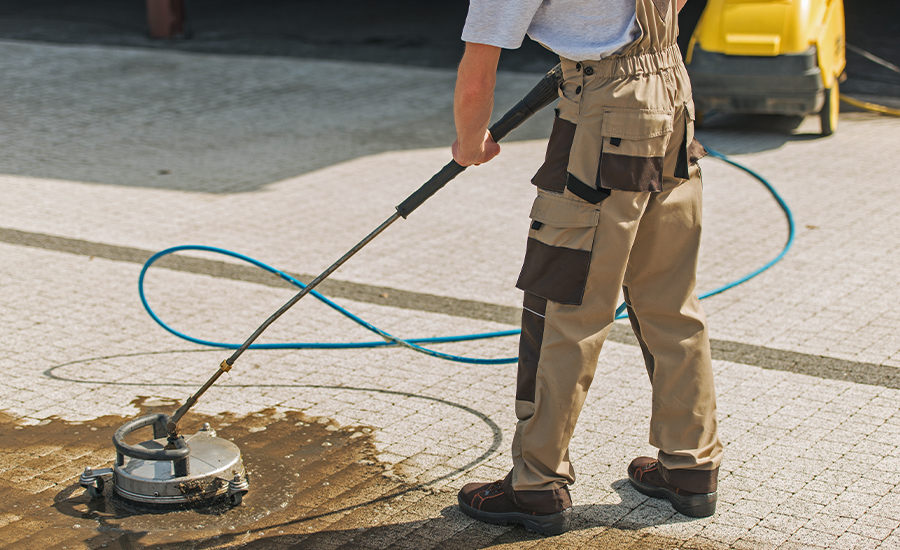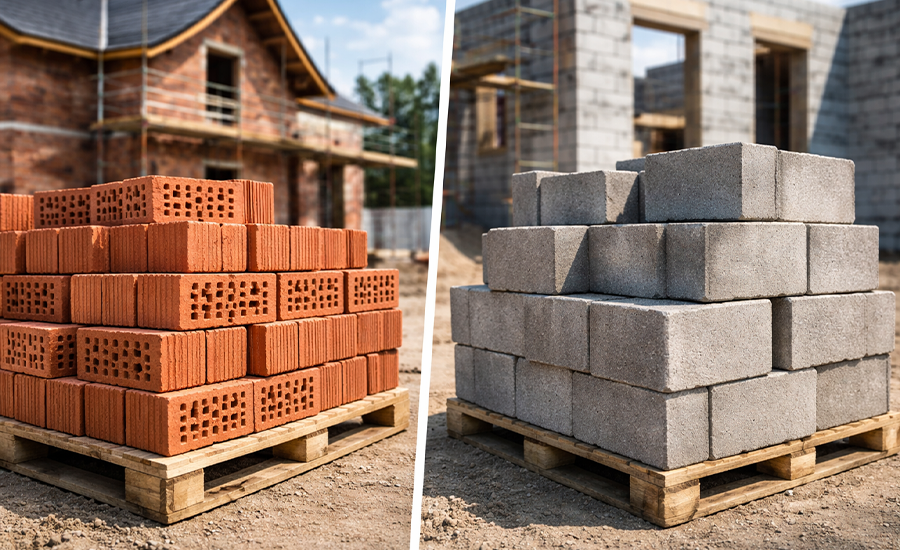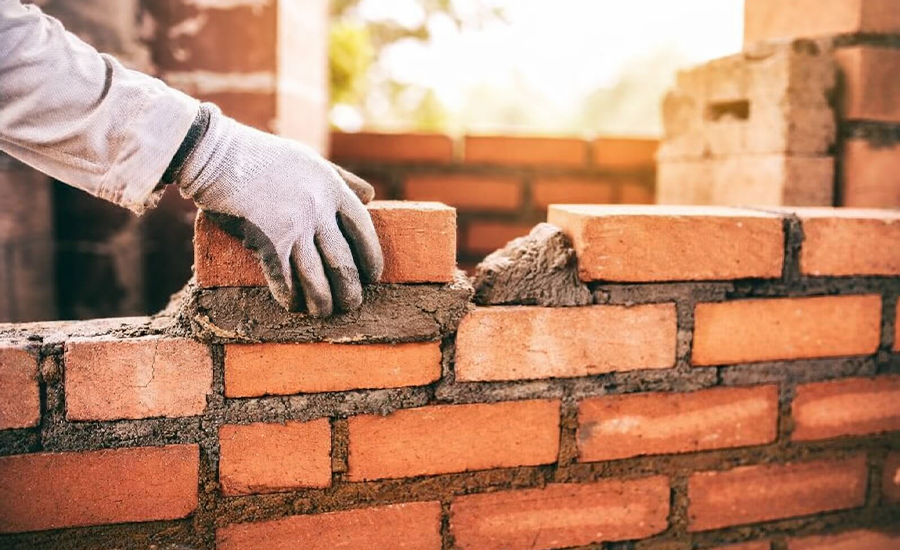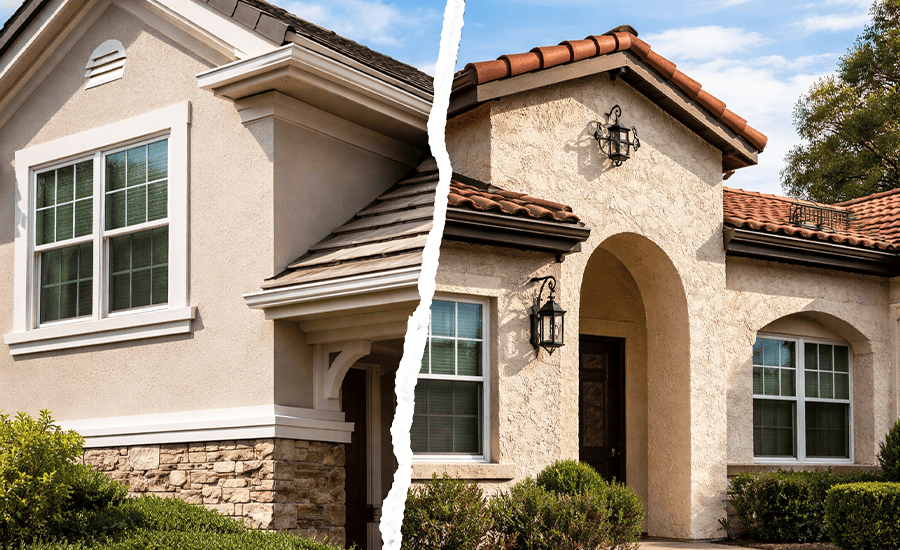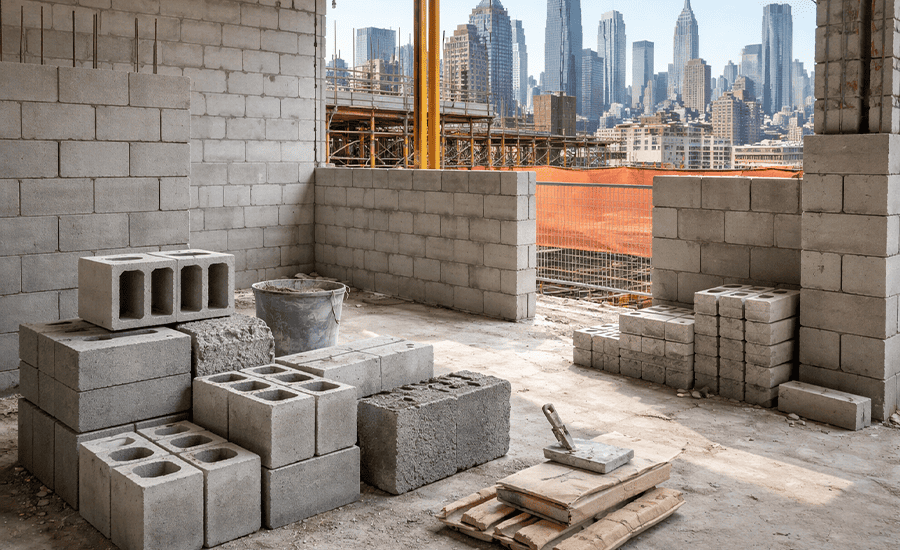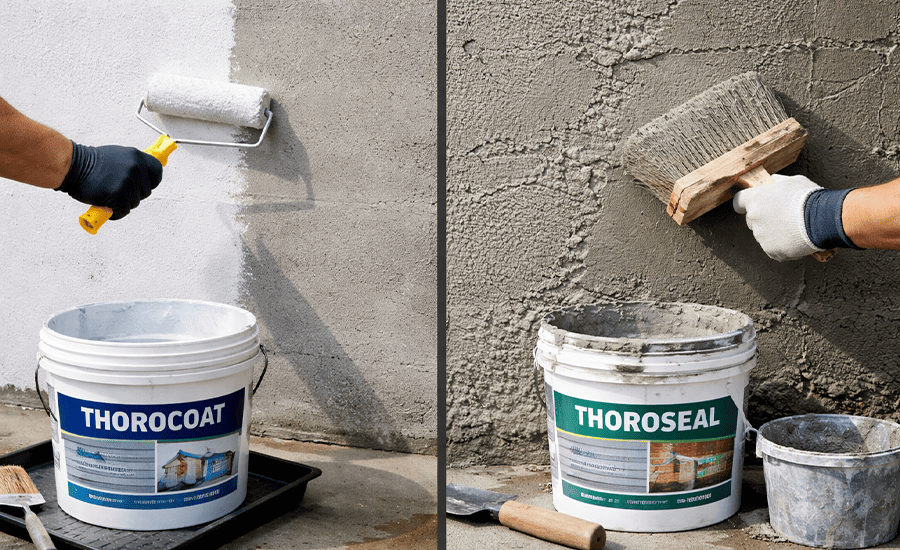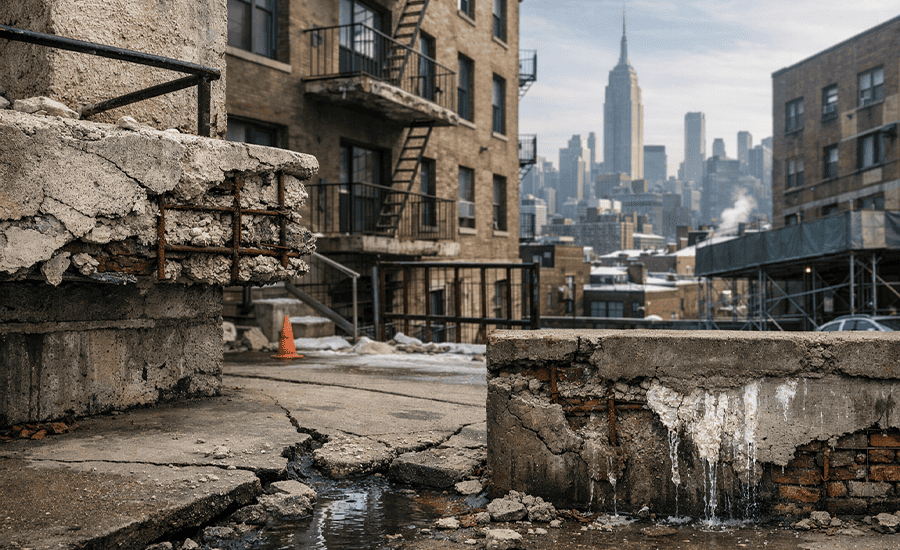In NYC, winters come with some challenges for your structures, as we can’t do brick pointing and pressure washing services because it doesn’t allow water to dry correctly. Pressure Washing is the service that not only enhances the look of your property but also makes it structurally strengthened. Make Sure to go for pressure washing services before the temperature gets too low. Your driveways and patios give the first impression of your property. So keep this in mind to pressure wash it twice a year and regularly maintain it to extend the lifespan of your property. Use the high-grade cleaning agents with adequate and controlled water pressure for excellent results and long-term protection while adhering to DOT & NYC safety standards.
In this blog, we’ll discuss the magic of pressure washing driveways and patios before winter arrives, its advantages, and the ideal time to pressure wash.
Why Pressure Washing Your Driveways & Patios Matters Before the Cold Weather?
With time, dirt, oil stains, microbial growth, or salt exposure start setting on the concrete, stone, or brick driveways and patios, which can not only make them look unattractive but can also be hazardous and demand costly repairs if the driveways get damaged. Let’s have a look at some of the advantages of pressure washing before the cold sets in:
Reduces Cold Weather Structural Stress
- Water trapped in tiny pores and cracks expands when it freezes, leading to spalling and cracking.
- Pressure washing clears away grime and residues that trap moisture.
- Clean, sealed surfaces handle winter’s freeze-thaw cycles better.
Maintains a non-slip driveway
- Algae, moss, and mildew thrive in shaded, damp areas during fall.
- Once frozen, these growths create slick, dangerous surfaces for both vehicles and pedestrians.
- A pre-winter wash removes these hazards before the ice forms.
Prevents corrosive build-up
- Leaves, dirt, and oil stains left on concrete or pavers can become permanent when frozen.
- Road salts and de-icing chemicals can corrode concrete and metal reinforcement.
- Cleaning and sealing before winter reduces staining and erosion risk.
Avoid costly repairs & extra cleaning
- Once snow and ice cover your driveway, cleaning becomes nearly impossible.
- Fall washing ensures a fresh, clean start when spring returns; no heavy scrubbing or pressure washing in icy weather is required.
Advantages of Pressure Washing Before the Freeze
Here is the list of advantages of pressure washing your driveway and patios before winter arrives. Let’s have a look at it:
| Advantages | How This Preventive Step Works |
|---|---|
| Minimize cracking & erosion | Removes debris & accumulated moisture that leads to cracking. |
| Enhances surface traction | Prevents slips by removing oil stains & algae growth. |
| Improves visual appeal instantly | Maintains a uniform & cohesive look of your driveways & patios. |
| Ensures proper adhesion for sealants | Improves surface durability & stronger adhesion. |
| Enhances resale potential | Maintaining patios improves the property’s worth. |
What will be the Perfect Time To schedule a Cleaning?
You can plan pressure washing your driveways anytime of the year, but the ideal time to schedule the cleaning is the spring or late fall when the temperatures rise to 70 °F.
- Choose a mild temperature: Plan washing your driveways after monitoring the weather, make sure to give 24-48 hours for complete drying.
- Monitor upcoming weather: Make sure to start pressure washing on a sunny or windy day so the moisture dries up properly.
- Ensure all work is done pre-snow: Make sure to wash before winter starts, as the washing biomes are less effective when snow builds up.
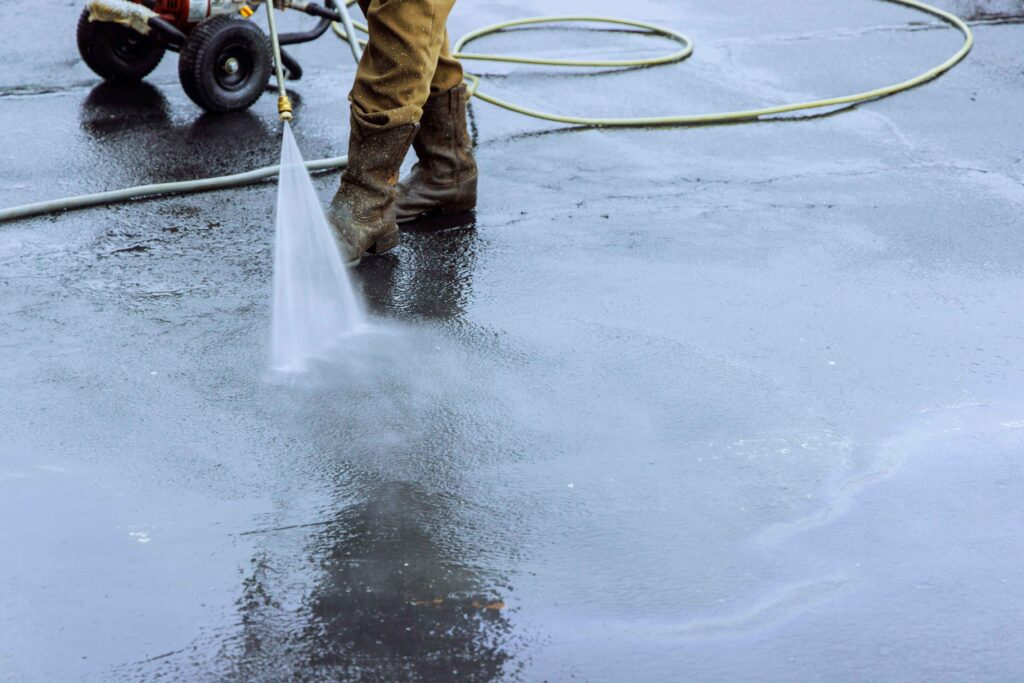
Step-by-Step Guide To Pressure Wash the Right Way
When you’re pressure washing your driveway & patios, make sure to follow this guide step by step for excellent outcomes:
Get Your Equipment Ready
- Surface cleaner attachment (optional but helpful)
- Biodegradable detergent or degreaser
- Safety gear (gloves, goggles, non-slip boots)
Prep the Surface
- Remove furniture, vehicles, potted plants, and debris.
- Sweep away loose leaves and dirt before spraying.
Apply stain Removers Before Washing
- Apply detergent or degreaser to oil spots, tire marks, or mold patches.
- Let it sit for 10–15 minutes before rinsing.
Begin the cleaning process
- Hold the nozzle about 12 inches from the surface.
- Work in even, overlapping passes to avoid streaks.
- Rinse thoroughly after cleaning to remove any detergent residue.
Wait until the surface is arid
- Allow at least 24–48 hours of drying time before applying any sealants.
- Avoid washing if freezing temperatures are expected soon after.
Errors of Pressure Washing That Could Damage Your Surface
Let’s have a look at some of the common pitfalls that come with pressure washing in winter:
| Common Errors | Consequences |
|---|---|
| Forgetting the detergent step | Grime buildup & hinders surface adhesion. |
| Using an inappropriate pressure setting | Driveways can get scratched & lead to micro-cracking. |
| Overlooking surface cracks | Water penetrates and widens the cracks. |
| Failing to apply sealants | Unsealed surfaces can deteriorate easily and accelerate corrosion. |
| Washing during cold spells | Concrete can trap water and start expansion & contraction. |
Essential Aftercare For Clean Surfaces
After cleaning your driveway and patio, make sure to apply these preventive measures to keep your surfaces strengthened all year round, especially in winter:
- Use premium quality weatherproof sealants to seal all the gaps and cracks.
- Make sure to seal the driveways & patios with water-repellent coatings, which act as a barrier against moisture.
- Do not use solutions with nitrates, as they can damage concrete.
- Make sure to use sand for traction instead of rock salt.
- Conduct regular inspections and remove the snow whenever it starts accumulating to get rid of freeze-thaw pressure.
Conclusion
Regular pressure washing before winter not only improves your property’s appearance but also safeguards it from costly damage. Clean and sealed driveways handle freeze-thaw cycles better and stay safer during icy months. This small maintenance step helps you avoid heavy repairs and keeps your property looking fresh year-round. Always plan your cleaning before the temperature drops to get the best results.
Sardar Restoration Corp proudly serves every corner of NYC, including the Bronx, Manhattan, Brooklyn, Westchester, and Queens. Our services are designed to meet your specific needs, providing top-quality solutions wherever you are. Check our service areas to see how we can assist you in your location.
Contact us today at (+1) 917-355-8556 or sardarrestoration@gmail.com, or visit us at 2770 Fish Ave, Bronx, NY 10469, United States.
FAQs
Do you remove oil stains, moss, or mildew?
Yes! Sardar Restoration Corp. uses high-quality degreasers and deterging agents to cut all the oil stains and biological growths that cause slippery surfaces and an unappealing look.
Do you apply sealant after washing?
Yes! Sardar Restoration Corp. Make Sure to use the high-grade, breathable, and water-repellent sealants on your driveways and patios after washing to prevent cracking and enhance visual appeal.
How often should I pressure wash my driveway or patio?
Our pressure washing contractor in NYC recommends that you pressure wash your driveways and patios once or twice a year before winter to prevent deep stains and long-term damage.
What if my driveway has cracks? Can you still pressure wash it?
Yes, but we prefer to repair all the cracks first, and then we start pressure washing it, ensuring no water can seep through the cracks while washing.
Can pressure washing help prevent winter salt damage?
Yes, pressure washing removes salt residue and grime buildup that can eat away at concrete and stone surfaces during winter.
What’s the best temperature for pressure washing driveways?
Ideally, choose a day when temperatures stay above 50°F to ensure proper drying and prevent moisture from freezing in the surface pores.
How long does pressure washing take?
Pressure washing driveways and patios can take 1-3 hours, but it depends on the size and grime buildup. Our experts aim for quick, efficient service with minimal disruption to your day.


